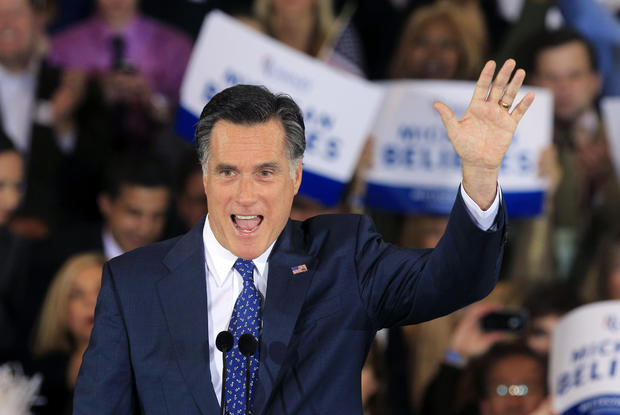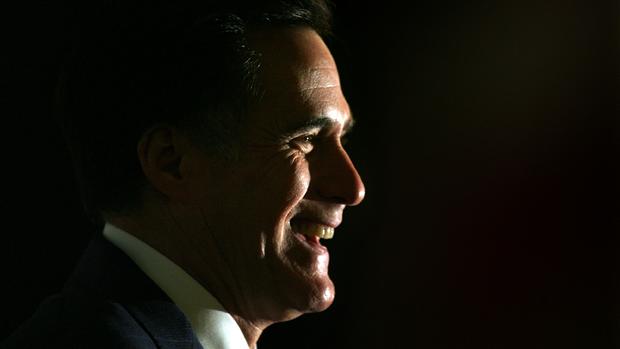Analysis: Mitt Romney avoids a Michigan disaster
Sure, it wasn't exactly a convincing win. And certainly, there will be those who say the fact that he barely won the state where he was born (and where his father was a popular governor) despite significantly outspending his rivals shows that he is the flimsiest of frontrunners.
But so what? Mitt Romney just avoided what would have been a catastrophic defeat, and in doing so set himself on a course to beat back the latest anti-Romney candidate and ultimately secure the Republican nomination for president.
To quote the candidate himself in his Michigan victory speech: "We didn't win by a lot, but we won by enough, and that's all that counts."
Romney in Michigan: "We won by enough"
Romney holds off Santorum in Michigan, Arizona
Indeed. Think about the headlines had Romney lost the Wolverine State: They would have centered on how Romney still can't win over conservatives, how he can't carry the Midwest, how he just can't seem to connect with Republican voters. There would simply have been no way for Romney's team to spin the result as anything but a disaster. Rick Santorum, meanwhile, would have received a shot of momentum that would have established him as one half of two-man race and carried over into Super Tuesday one week from today.
Instead, Romney has two more victories under his belt - the other in Arizona, which he won handily - while Santorum missed a golden opportunity to establish himself as the go-to choice for those who simply can't warm to the former Massachusetts governor. Santorum's loss leaves the door open for Newt Gingrich, who has vowed a comeback starting in the Southern states next Tuesday, to keep angling for that spot as the conservative alternative to Romney - and keep splitting the anti-Romney vote.
To some extent, Romney got lucky. Santorum stumbled in the days leading up to Tuesday, making headlines for comments that have nothing to do with the economy, which voters in the state (and in the nation) overwhelmingly cite as their top issue. Santorum attacked the value of higher education as well as John F. Kennedy's argument for a line between politics and religion, and put in a surprisingly mediocre debate performancein which he seemed unprepared for expected attacks on his time in Washington.
Perhaps Romney's strongest argument to skeptical Republicans is that he is the candidate with the best chance to beat President Obama in the fall - and Santorum's comments, with their potential to alienate independents, played right into that argument. To be sure, there are Republicans for whom Santorum's comments resonate: Exit polls showed that the former Pennsylvania senator easily won self-described "very conservative" voters, as well as evangelical and born again Christians, and those who say it's most important to nominate a "true conservative" or a candidate with "strong moral character."
Full Michigan results
Michigan exit poll
But look at the one in three GOP primary voters who say the most important quality is that the candidate can win in November: Romney won this group overwhelmingly. Santorum ran ads in Michigan designed to convince Republicans that he would do well in the general election, and at least some polls backed that up. But the message clearly didn't take, and Santorum's culture-warrior comments surely didn't help.
Why Michigan was so close, and how Romney won
Romney didn't do himself many favors in the run-up to primary day, making a pair of comments that reminded working-class voters that as much as he tries to feel their pain, he's not really one of them. The first comment that his wife drives "a couple of Cadillacs" was followed by his admission that even though he doesn't follow NASCAR closely, he has "some great friends who are NASCAR team owners." Still Santorum's margin of victory over Romney among voters who earn less than $100,000 per year was relatively small, suggesting Romney was spared significant damage.
After a detour for the Washington caucuses on Saturday, the race shifts to Super Tuesday March 6, when ten states hold contests. If Gingrich doesn't do well in the southern trio of Oklahoma, Tennessee and his home state of Georgia, he'll face tremendous pressure to leave the race; is Romney doesn't do well in Ohio, the crucial swing state where Santorum now leads in the polls, questions about his candidacy will once again be renewed.
But for now, at least, Romney can breathe a sigh of relief. There's still a long way to go before this nomination is decided - CBS News now estimates that Romney has 157 delegates, far short of the 1,144 he needs to take the nomination. And there's no doubt that Romney continues to struggle to convince a significant portion of his party to rally around him. But for the first time in weeks, he does have momentum, and at this stage of the race, that's far more important than the delegate count. For the time being, at least, Romney has pushed aside talk of a contested convention and quieted calls for a white night candidate to come in and rescue the party. After flirting with disaster, he's managed -- just barely -- to right the ship.
Full Republican delegate scorecard
Nationwide primary results so far

